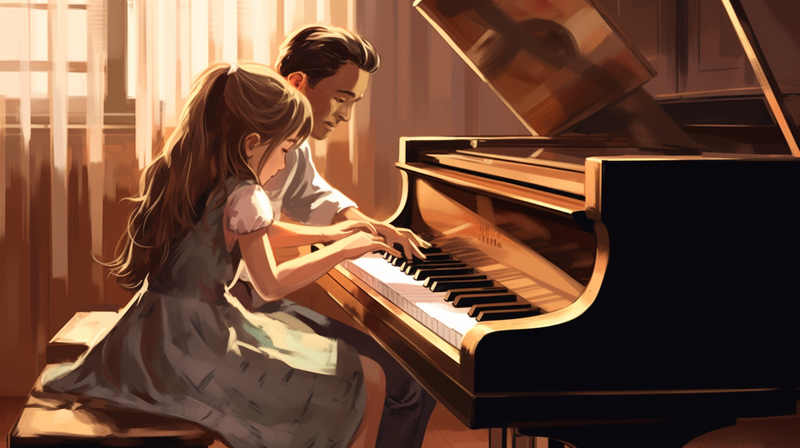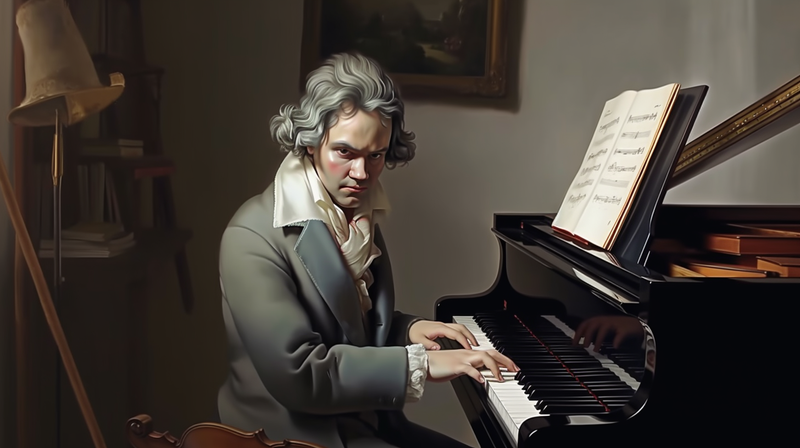I had a great lesson with one of my students this week that brought up an important reminder for me that I want to pass along. I want to encourage all of you to strategically do NOTHING.
My student “Katie” is a hard-worker, but not a natural talent. She enjoys playing but has been stuck at some typical stumbling blocks encountered by late beginners. We were working on a little piece called “Someday” that I wrote which emulates a lot of current pop music.
As much as she was excited about the piece, there were still many elements that posed a challenge, particularly hand position shifts and using fingerings. Much to my surprise at our lesson on Tuesday she had mastered the piece, the hurdles were cleared, and she was so proud of her accomplishment that she wanted to play the piece a second time for me just to prove that it wasn’t an accident.
My instant reaction in my head (other than joy and a bit of relief) was, “fantastic, you’ve got this down, now we can move on to a new piece!” BUT, I stopped myself. I took a moment to gut check why that was my instant reaction. Why did I want to immediately put a new challenge on Katie’s plate after this huge accomplishment in her learning process? So I didn’t. This was a case where my own goal-driven nature could have put a damper on this student’s feeling of pride for her achievement had I pushed her forward into new repertoire. So I did NOTHING. Well, actually, I did do something. I praised her for her accomplishment and excellent practice skills and told her to take the week to enjoy playing the piece now that she has it down pat and to play some older review pieces that we picked out together. She was delighted to hear she could essentially have a week off to enjoy playing pieces she already knows without the worry of practicing new material. We also did a little walk-down-memory-lane and talked about the problem spots that she felt frustrated over and what she did to remedy these issues.
We tend to always be looking forward in piano lessons, worrying about the current stress, how hard the current piece is, and so often, we forget where we came from and what we’ve already overcome. Katie and I also took a look at her assignment book to see what we were working on a year ago to date and laughed about how she used to think those pieces were so diffictul. I encourage all teachers to do this often, especially on days when the ‘it’s too hard’ monster comes out to play.
Piano teachers are in a tough spot because, by nature, we tend to be extremely goal-driven and disciplined people. First off, most of us have studied for many years, we know the formula for progress and success and it is natural that we want to impart this knowledge on our students in the hopes of them being as tenacious as we are. Secondly, we are driven as business people and entrepreneurs. Whether we say it out loud or not, we feel that the success of our students is a direct reflection of our skill level as teachers. Both of these points can get us into hot water. We may be driven to succeed in music, but for the general population of hobbyists, us getting frustrated with their lack of commitment can be utterly exhausting for both teacher and student. And as with Katie’s situation, our own goal-driven nature that wants to push forward can put too much stress on the student instead of letting them revel in their current win.
Chances are your students will be more welcoming of new challenges after you give them a week or two of breathing-room. On the business side, I often have gotten stuck in the mindset that we must explore something new at each lesson so that my customer (read: the parents!) feel like they are getting a good value for their money. It is essential to always get back to the core of our job as music teachers: to teach a lifelong love of music and sometimes this means just letting your students have a week of free-time to play the pieces they enjoy instead of always inviting a new struggle to the party. I told Katie when her mom asks what she did in her piano lesson this week to smile big and tell her proudly, “I did nothing! Wanna hear some songs?”







What an excellent blog topic, Jennifer! I was almost driven to tears as I read this because of how your words spoke to me. Thank you for this great advice!
You’re most welcome, glad you enjoyed this!